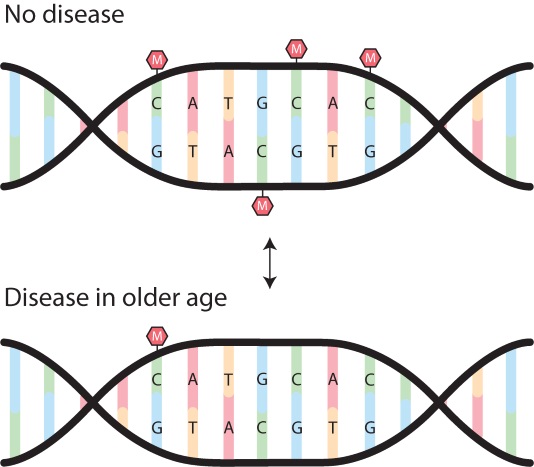SUB-STUDIES
the ASPREE project is in a unique position to lead multiple sub-studies, each investigating specific health issues affecting older adults.
What is a sub-study?
→ View ASPREE sub-studies
A sub-study (also known as an ancillary study) is a type of ‘add-on’ study that answers a separate research question within a larger research project. Sub-studies research specific health questions that are not included in the main study. The ASPREE project is in a unique position to conduct multiple sub-studies. The extra health information will help show the interrelationships between various factors that can affect how we age.
Sub-studies provide new opportunities and experiences for participants – from donating blood samples, to having hearing tests, retinal photographs, sleep apnoea checks, MRI scans, to completing additional questionnaires about lifestyle, diet and more.
Not all ASPREE participants were able to enrol in all sub-studies because each sub-study was introduced at a different stage in the trial, when funding became available or special equipment was present at the time. However, most participants volunteered for at least one sub-study during the ASPREE trial.
Some sub-studies use existing medical health records and do not require any additional participant activities.
Thanks to the generosity of our study participants, these sub-studies provide invaluable information about aspirin, health and aging, that we would not otherwise be able to collect in the main research project.
ASPREE sub-studies
Click on the sub-study below for more information
ASPREE Cancer Endpoints Study (ACES)
A study of cancer in older adults

Above: An illustration of a cancer tissue sample in preparation for close examination by researchers
Summary: The ACES sub-study is funded by the National Cancer Institute (NCI), with the aim to understand factors associated with the development and spread of different types of cancers in older adults.
Cancer is one of the most common diseases and a leading cause of death worldwide. Aging is a factor that increases the risk of cancer.
ACES collects cancer related health information from participants annually and stores blood or saliva and cancer tissue samples (biospecimens) in a biorepository.
Aims: Research using these data may help predict what factors influence the incidence of specific cancers, their spread (metastasis) and the impact of a therapy (including low-dose aspirin) on cancer-free survival.
Health Information collected:
- Participant reported lifestyle factors such as smoking and drinking history, body weight, cancer screening, tests, cancer diagnoses (old and new) and family history of cancer are collected annually
- Medical/specialist health records related to a cancer diagnosis
- A sample of blood or saliva is stored in the ASPREE Biobank
- A tumor tissue sample – If a participant has a cancer biopsied or surgically removed as part of their Primary Care Provider’s (PCP’s) care, we collect a small sample of the tumor tissue from the pathology provider, for storage in the ASPREE Biobank
Location: USA and Australia
Status: Active, not recruiting. Started in 2013, data collection continues
Additional Information: Participant FAQs
Chief Investigator: Dr Suzanne Orchard
Publications: Yes
Collaborators:
- Berman Center for Outcomes and Clinical Research (Minneapolis, MN) plus 21 centres across the USA
- Monash University
- Menzies Institute of Medical Research (TAS)
- The University of Melbourne
- Australian National University
- The University of Adelaide
- GP Associate Investigators
Funding:
- National Cancer Institute (NCI), USA
- Monash University
- Commonwealth Scientific and Industrial Research Organisation (CSIRO)
Data Access: Contact the relevant sub-study chief investigator or visit the ASPREE Access Management Site (AMS) before submitting an expression of interest to access sub-study data.
Content updated: February 7, 2023
ASPREE Cancer Treatment Study (ACTS)
A study of cancer treatment in older adults

The ASPREE Cancer Treatment will determine whether surviving cancer increases the risk of persistent health problems for older adults.
Summary: Cancer is one of the most common diseases and a leading cause of death worldwide. Aging increases the risk of cancer.
Early detection and new treatments have generally increased cancer survival. Research suggests that cancer survivors are more likely to develop persistent health problems and experience more rapid declines in cognition (thinking and memory) and functional ability than similar-aged adults who have not had cancer. It is not well understood if these increased risks are due to cancer itself, or whether the treatment, overall, or specific treatment type, plays a role.
Aim: To determine whether surviving cancer increases the risk of persistent diseases, such as cardiovascular disease, cognitive health and physical function.
Health Information collected:
- This sub-study is undertaken entirely through examination of medical records and health information
- Involves the collection of medical/specialist health records related to cancer treatments that ASPREE participants undertake after being diagnosed with cancer, including surgery details and therapies (such as chemotherapy and radiation)
Location: USA and Australia
Status: Active, not recruiting. Started in 2020, data collection continues
Chief Investigators: Prof John Zalcberg, Dr Suzanne Orchard
Publications: N/A
Collaborators:
- Massachusetts General Hospital/Harvard University
- Monash University
- Berman Center for Outcomes and Clinical Research (Minneapolis, MN) plus 21 centres across the USA
- GP Associate Investigators
Funding:
- NIA – National Institute on Aging, USA
Data Access: Contact the relevant sub-study chief investigator or visit the ASPREE Access Management Site (AMS) before submitting an expression of interest to access sub-study data.
Content updated: February 7, 2023
ASPREE-D (Depression)
A study of low-dose aspirin and depression in older adults

ASPREE-D was the first to study the effect of aspirin versus placebo on the prevention of depression in older adults.
Summary: An estimated 10-15% of people aged between 70 – 85 years will experience depression at some point in time. Symptoms of depression are often missed and untreated and can be mistakenly attributed to ageing and subsequently remain undetected and untreated. In older people, untreated depression is associated with a wide range of poor health outcomes, including an increased risk of dementia, social isolation, loss of quality of life and a shortened lifespan. Depression is associated with increased inflammation raising the question whether anti-inflammatory therapies might be useful for prevention or treatment of depression.
Aim: Aspirin has well-known anti-inflammatory actions. With the large number of people enrolled in the ASPREE trial, for the first time, researchers in the ASPREE-D sub-study investigated whether aspirin prevented the onset of depression in older adults, or could alleviate depression in those presenting with depression.
Health Information Collected:
- ASPREE participants answered questions about their history of depression and completed a measure of depression called the Center for Epidemiologic Studies Depression Scale (CES-D)-10 item scale at annual study visits. The (CES-D)-10 is a screening tool that may indicate possible depression. While only a qualified medical practitioner can make a formal diagnosis, the CESD is a reasonable proxy for diagnosis.
- Researchers will also examine blood samples in the ASPREE Biobank for the presence (or absence) of proteins or ‘biomarkers’ associated with inflammation. They will then be able to determine the relationship between these inflammatory ‘biomarkers’ in the blood and diagnosed depression. Knowing which biomarkers are associated with depression may help predict those at risk of depression or may help identify people likely to benefit from aspirin.
Location: USA and Australia
Status: Completed. Main findings published (with exception of the inflammatory biomarker component)
Chief Investigator: Prof Michael Berk
Publications: Yes
Collaborators:
- Rush University Medical Center, Department of Family Medicine and the Rush Alzheimer’s Disease Center (USA)
- Monash University (Australia)
- Deakin University, School of Medicine (Australia)
- University of Melbourne, Department of Psychiatry and School of Public Health and Preventive Medicine (Australia)
- Orygen Youth Health Research Centre (Australia)
- Erasmus Medical Center, Department of Immunology (The Netherlands)
- Florey Institute of Neuroscience and Mental Health (Australia)
- GP Associate Investigators
Funding:
- The Australian National Health and Medical Research Council (NHMRC) grant 1081901
Data Access: Contact the relevant sub-study chief investigator or visit the ASPREE Access Management Site (AMS) before submitting an expression of interest to access sub-study data.
Content updated: July 9, 2022
ASPREE-EWAS (Epigenetics)
A study of blood DNA methylation in older adults

The EWAS sub-study will examine how lifestyle and environmental factors, such as nutrition, physical activity, pollution and stress may change DNA methylation to switch gene function ‘on’ or ‘off’ over time.
Summary: We are all born with our own individual DNA or genetic code. The genetic code is the body’s blueprint, containing all the necessary information for us to grow and function. Generally, our genetic code remains relatively fixed from conception until death. However additional information in our cells helps control how our genetic code is used over a lifetime, such as when the function of a gene is switched ‘off’ or ‘on’.
Lifestyle and environmental factors, such as nutrition, physical activity, pollution and stress may trigger one of several epigenetic processes which can activate or deactivate gene function. For instance, good nutrition may influence the production of chemicals (methylation) which attach to the genetic code and ‘turn-off’ genes associated with heart problems. This explains how a good diet may affect heart health at a genetic level.
Epigenetics is still a relatively new field and much more research is needed to understand how lifestyle behaviours such as increasing exercise may alter or reverse epigenetic patterns over the short and long term.
Epigenetic changes are also thought to underlie certain diseases. Some of the most widely studied mechanisms of epigenetic regulation include DNA methylation (the attachment of a chemical to the genome), histone modifications and non-coding RNAs. Due to its stability and ease of measurement, DNA methylation is most commonly examined in large studies involving many individuals.
This sub-study measures epigenome-wide DNA methylation patterns (EWAS) in blood samples donated by ASPREE participants at enrolment into the trial and three years later.
Researchers will examine 850,000 sites for biomarkers across all genes. The DNA methylation biomarkers can be matched with participants’ lifestyle, behaviours and health at the time the sample was given, and prior to future health events, such as cancer or depression, should they occur.
The EWAS sub-study will enable researchers to use DNA methylation biomarkers to help identify older adults at risk of developing health conditions and help identify factors which may prevent or progress poor health.
Aims:
- Determine the DNA methylation patterns of individuals in the ASPREE Biobank at baseline and three-years, and contribute to ASPREE’s research interests in cancer, dementia, cardiovascular disease, physical disability, depression and frailty and other conditions affecting health as we age
- Investigate how lifestyle and behaviours are associated with DNA methylation patterns and changes in patterns over time
Health Information Collected:
- Blood samples provided to the ASPREE Healthy Ageing Biobank, at study recruitment and at three-years
- Relevant health, lifestyle and behaviour information provided by ASPREE participants during the course of the ASPREE trial and follow up ASPREE-XT study
- Participant health outcomes (endpoints)
Location: USA and Australia
Status: Active, not recruiting
Chief Investigator: A/Prof Joanne Ryan
Publications: Yes
Collaborators:
- Monash University (Australia)
- Berman Center for Outcomes and Clinical Research (Minneapolis, MN) plus 21 centres across the USA
- GP Associate Investigators
Funding:
- Monash University
- NHMRC – The Australian National Health and Medical Research Council
Data Access: Contact the relevant sub-study chief investigator or visit the ASPREE Access Management Site (AMS) before submitting an expression of interest to access sub-study data.
Content updated: February 7, 2023
ASPREE-G (Genomics)
A study of genetics on the health of older adults

Summary: Genetic research is a broad term for the study of traits passed down generations through the inheritance of genetic material (such as DNA). Genetic research has an important role in medical research.
Genes are the fundamental unit or ‘blue-print’ of life which can determine many of our physical traits such as eye colour and blood type. Genes also contribute, in combination with the environment, to more complex human traits such as personality, behaviour and the risk of developing a disease.
Humans have approximately 20,000 genes, each gene composed of a chemical called DNA (deoxyribonucleic acid). DNA gives the instructions or the chemical code to express traits, such as telling the body which type of protein to make and when. These proteins form part of a complex chain of events that impact on how we look and function.
Thanks to rapid advances in technology, an individual’s entire genetic information can be studied through a process called genome sequencing. Genome sequencing reveals more about human genetics than ever before; it also reveals large expanses of the human genome about which we know very little, if anything.
Our health often has at least a small genetic component. Longevity that runs in families is an example of how genes may influence good health. Genetic research is in many ways, pioneering. Genetic research in older adults aims to understand the role genetic make-up has on our health so that one day we may be able to better detect or prevent age-related diseases such as cancer, dementia and cardiovascular disease.
Aims:
Genetic studies on Biobank samples contribute to a growing body of research knowledge about genetics and health. Samples in the ASPREE Biobank will enable researchers to better understand the role of our genes in health and ageing. Discoveries may take time to emerge, however their benefits and impact will be highly important for many years to come.
Health information collected:
- More than 15,000 ASPREE participants in the United States and Australia have generously donated blood or saliva samples for future biomarker or genetic research.
- Each sample contains DNA from healthy adults who have consented to genetic research (most other genetic studies look at the genes from people with disease)
- All samples are of very high quality, maximising research opportunities and are associated with unprecedented health and lifestyle information to help bridge the link between our health and what is happening at a genetic level
- Genetic studies on ASPREE Biobank samples are for research purposes only and are not intended to be medical investigations or diagnostic tests
Location: USA and Australia
Chief Investigator: A/Prof Paul Lacaze
Genomic projects:
1. The Medical Genome Reference Bank (MGRB) (Australia) – involves sequencing of 4,000 genomes from healthy people aged 75 years and over in the ASPREE study and the Sax Institute’s ’45 and Up’ Study. Genetic information from the genomes will be used to form a reference bank or library of ‘healthy genomes’ of the ‘wellderly’ (well older people). The ‘healthy’ reference bank can be used as a comparison by researchers to identify, more easily, genes that cause disease.
Status: Completed
| MGRB Collaborators: | MGRB Funding: |
|
|
2. The Resilience Project – examines approximately 760 genes from ASPREE Biobank participants in Australia and the US for the presence of genetic variations associated with disease. The aim is to identify and understand why healthy older adults with these genetic variations remain free of disease when others do not. Additionally, the Resilience Project may also help reveal to ASPREE researchers genes that can reliably predict the onset of cardiovascular disease, cancer, dementia and depression in older people.
Status: Completed
| The Resilience Project Collaborators: | The Resilience Project Funding: |
|
|
Publications: Yes
Data Access: Contact the relevant sub-study chief investigator or visit the ASPREE Access Management Site (AMS) before submitting an expression of interest to access sub-study data.
Content updated: August 8, 2021
ASPREE Longitudinal Study of Older Persons (ALSOP) and the follow-up ALSOP-XT

Summary: ALSOP involves a series of questionnaires to help identify factors that may have a major influence on health, independence and quality of life as we grow older. For example, difficulties with hearing or eyesight, sleep, pain or falls are common problems for some older adults and can have a real impact on quality of life. Lifestyle and social factors, such as physical activity, access to transport and social connection are also important.
Following on from the ALSOP questionnaires completed by participants in Australia during the ASPREE trial, we are continuing to explore factors affecting the health, independence and quality of life of participants in a series of ALSOP-XT questionnaires being sent to ASPREE-XT participants in the USA and Australia.
Aim: To examine how general health, behavioural, social, economic and environmental circumstances affect health, quality of life and independence in older age.
Information collected:
A broad range of factors are explored including hearing, vision, dental health, pain, diet, physical activity, health service access, male and female health issues, social and community engagement, work, caring responsibilities, financial wellbeing and major life events.
ALSOP-XT builds on information provided by participants in ALSOP and includes a few additional questions related to the COVID-19 pandemic.
Location: ALSOP was conducted in Australia. ALSOP-XT questionnaires are being sent to ASPREE-XT study participants in Australia and the USA in 2021, and repeated in 2023.
Status: Active, recruiting. Baseline, year 3 and year 5 ALSOP questionnaires have been sent and returned.
Chief Investigators:
- Prof John McNeil for ALSOP questionnaires, years 1 – 5
- Prof Andy Chan (USA) and A/Prof Robyn Woods (Australia) for the (post ASPREE) ALSOP-XT questionnaires
Publications: Yes
Collaborators:
ALSOP-XT
- Monash University
- Harvard University
- Berman Center for Outcomes and Clinical Research
Funding:
ALSOP
- Monash University
- The JO & JR Wicking Trust and Mason Foundation, ANZ Trustees
ALSOP-XT
- National Institutes of Health
Data Access: Contact the relevant sub-study chief investigator or visit the ASPREE Access Management Site (AMS) before submitting an expression of interest to access sub-study data.
Content updated: August 8, 2021
ASPREE-XT Microbiome Study
Studying gut microbiome and health in older adults

Above: An illustration of the variety of bacteria, viruses, fungi and other microbes in our gut.
Summary: There is increasing evidence that our gut microbiome can play a significant role in our health and wellbeing. The gut microbiome is a collective term for trillions of bacteria, viruses, fungi and other microbes in the gut and it can be measured in a stool or ‘poo’ sample.
Aging is associated with changes in the gut microbiome, however these age-related changes in older adults are poorly understood. Previous studies have either been too small or limited to younger adults to understand the link between the types and number of microbes in the gut and its effect on good health and / or poor health in older persons.
Aims:
- Understand the relationship between gut microbiome, diet, and lifestyle factors and how these may contribute to good health or the development of disease, including cancer.
- Identify the gut microbiome associated with cognitive decline and dementia
- Identify the gut microbiome associated with physical disability and frailty
Health information collected:
- A small stool scraping into three tubes, collected at home
- Tongue swab the following day, collected at home
- Two brief questionnaires; one about the stool sample, diet and medication use, and the other related to the tongue swab sample and dental health
- Information about diet and lifestyle factors reported in ALSOP-XT questionnaires
- Health events collected in the ASPREE-XT longitudinal study
Microbial DNA will be extracted from the stool samples and used to identify the types and numbers of microbes to examine if there is a link between microbe content and good health or adverse health outcomes, such as cardiovascular disease, frailty or dementia.
Location: USA and Australia
Status: Active, recruiting. Starts in 2021, with health information collected once more in 2023
Additional information: Microbiome information brochure and video coming soon
Principal Investigators: Prof Andy Chan (USA) and A/Prof Robyn Woods (Australia)
Manager: Dr Alice Owen (Australia)
Publications: N/A
Collaborators:
- Monash University
- Harvard Medical School
Funding:
- National Institutes of Health
Data Access: Contact the relevant sub-study chief investigator or visit the ASPREE Access Management Site (AMS) before submitting an expression of interest to access sub-study data.
Content updated: February 5, 2024





